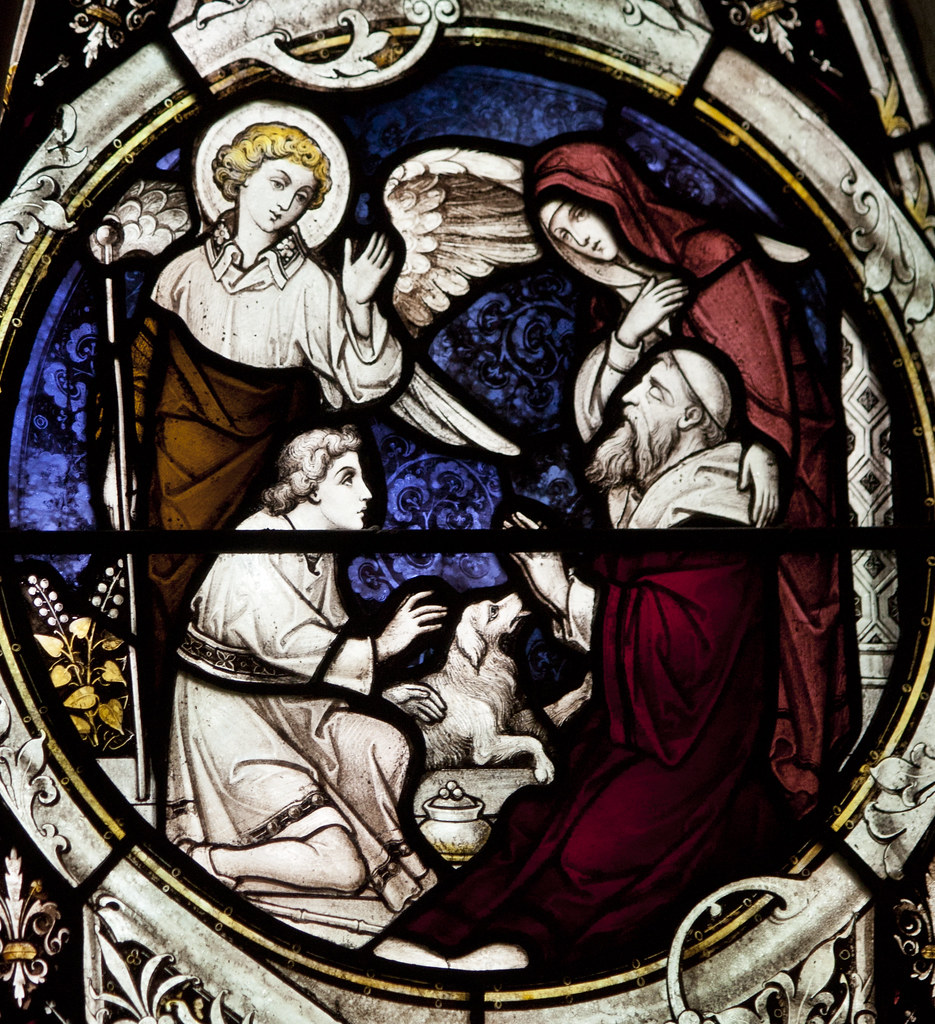 |
| Mary the New Eve |
Do good, and evil will not find its way to you.
Prayer and fasting are good,
but better than either is almsgiving accompanied by righteousness.
A little with righteousness is better than abundance with wickedness.
It is better to give alms than to store up gold;
for almsgiving saves one from death and expiates every sin.
Those who regularly give alms shall enjoy a full life;
but those habitually guilty of sin are their own worst enemies.
Today we come to the end of the Book of Tobit. I've been fascinated by the gospel selections this week and not commented upon Tobit, but it is one of my favorite books of the Bible.

Sadly, Martin Luther discounted the book and it does not appear in Protestant Bibles. I often recommend it to my long-suffering colleagues at the VA. It has a very clever plot and wonderful teachings about almsgiving, marriage, prayer and God's fidelity.
Plus it has the only references in the Bible to a dog as a pet. Check it out! (Tobit 6:2 & Tobit 11:4) And notice the five characters in this stained glass window: Raphael, Tobit's wife Anna, Tobiah, Tobit and the dog.)
In the selection above, Raphael gives Tobit and his family good advice; advice familiar to anyone who has read the wisdom books of the Old or New Testament. He recommends almsgiving and living modestly, without the pretensions of wealth.
Tobit is a kind of everyman. He is not especially wealthy or wise; his piety is edifying but his flaws are obvious. We have to admire his defiance of the government that terrorized its migrant population; but, like you and me, he is prey to discouragement, frustration and bitterness. His story celebrates God's fidelity to His faithful people, even those who are, in the long run, not very heroic.
Today's gospel also has sage advice for ordinary people. Do not admire or emulate wealthy philanthropists who make great show of their charity. "They have their reward." Rather, admire people like this poor widow; they do not ration their generosity.
Historians sometimes debate whether the course of human affairs is directed by "great men" or "great movements." The divine authors of the Bible would credit God, the Lord of History. Mother Theresa famously advised us to aspire to fidelity, not success. The only one who makes a difference is God.
In the last chapter, the divine author tells us Tobiah lived to see the fall of Assyria and its evil city, Nineveh. I am reminded of Psalm 137: "I saw the wicked triumphant, like a towering cedar. I passed by again they were gone, no where to be found."
If we are fortunate we live long enough to see the wicked perish and the virtuous persist. We live to see another day and the wonderful works of God.
Generosity is a curious virtue. Somebody, usually the recipient, knows if you are generous. The motivation of generosity can be very selfish as the wealthy in Jesus' observation. To give from your own lacking is puzzling. Any parent can tell you that giving to children whether it be time or money is generosity. You can then believe that others will be generous to you.
ReplyDeleteLooking at the picture with the Collect, I believe it is the Annunciation at St. Mary's in New Albany. I've seen it many times.
ReplyDeleteGood guess!
ReplyDelete